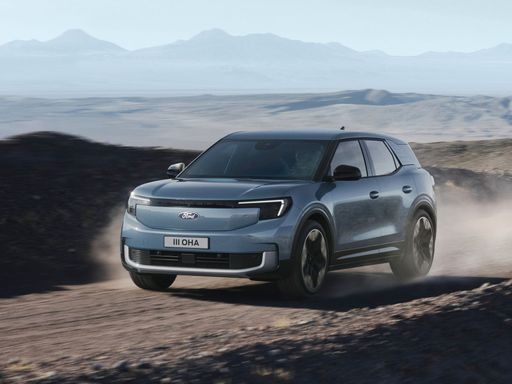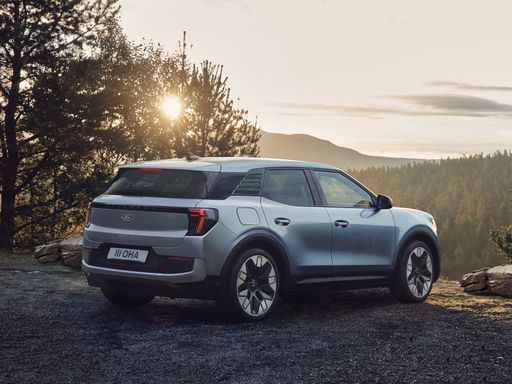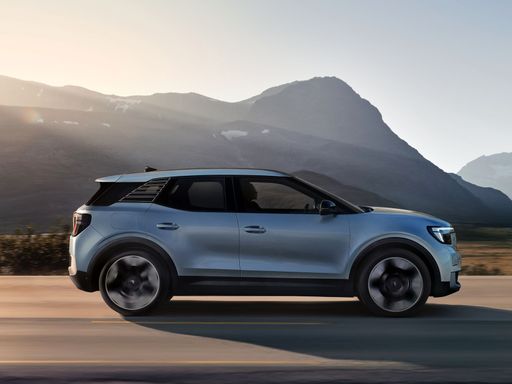Ford Explorer EV vs Nissan Leaf - Differences and prices compared
Compare performance (340 HP vs 217 HP), boot space and price (34200 £ vs 30800 £) at a glance. Find out which car is the better choice for you – Ford Explorer EV or Nissan Leaf?
Costs and Efficiency:
When it comes to price and running costs, the biggest differences usually appear. This is often where you see which car fits your budget better in the long run.
Nissan Leaf has a somewhat advantage in terms of price – it starts at 30800 £, while the Ford Explorer EV costs 34200 £. That’s a price difference of around 3429 £.
In terms of energy consumption, the advantage goes to the Ford Explorer EV: with 14.50 kWh per 100 km, it’s slightly more efficient than the Nissan Leaf with 16.70 kWh. That’s a difference of about 2.20 kWh.
As for range, the Ford Explorer EV performs noticeable better – achieving up to 602 km, about 217 km more than the Nissan Leaf.
Engine and Performance:
Power, torque and acceleration say a lot about how a car feels on the road. This is where you see which model delivers more driving dynamics.
When it comes to engine power, the Ford Explorer EV has a noticeable edge – offering 340 HP compared to 217 HP. That’s roughly 123 HP more horsepower.
In acceleration from 0 to 100 km/h, the Ford Explorer EV is evident quicker – completing the sprint in 5.30 s, while the Nissan Leaf takes 6.90 s. That’s about 1.60 s faster.
In terms of top speed, the Ford Explorer EV performs slightly better – reaching 180 km/h, while the Nissan Leaf tops out at 157 km/h. The difference is around 23 km/h.
There’s also a difference in torque: Ford Explorer EV pulls convincingly stronger with 679 Nm compared to 340 Nm. That’s about 339 Nm difference.
Space and Everyday Use:
Beyond pure performance, interior space and usability matter most in daily life. This is where you see which car is more practical and versatile.
Both vehicles offer seating for 5 people.
In curb weight, Nissan Leaf is evident lighter – 1580 kg compared to 1908 kg. The difference is around 328 kg.
In terms of boot space, the Ford Explorer EV offers slightly more room – 450 L compared to 394 L. That’s a difference of about 56 L.
In maximum load capacity, the Ford Explorer EV performs convincingly better – up to 1422 L, which is about 632 L more than the Nissan Leaf.
When it comes to payload, Ford Explorer EV evident takes the win – 585 kg compared to 415 kg. That’s a difference of about 170 kg.
Who wins the race?
The Ford Explorer EV proves to be is largely superior and therefore becomes our DriveDuel Champion!
Ford Explorer EV is the better all-rounder in this comparison.

Ford Explorer EV
Costs and Consumption
View detailed analysis
Engine and Performance
View detailed analysis
Dimensions and Body
View detailed analysis
Ford Explorer EV
The Ford Explorer EV translates the familiar big‑American SUV presence into whisper‑quiet electric motoring, offering roomy seating and a tech‑forward cabin that will please families and road‑trippers alike. It drives with more composure than its boxy looks suggest, blending a comfortable ride and eager acceleration while undercutting the guilt of gas stops — a practical, modern alternative for buyers who want Explorer space with electric charm.
details


Nissan Leaf
The Nissan Leaf is a practical, easygoing electric hatch that turns daily commutes into a quiet, effortless affair while offering more cabin space than it lets on. It’s a sensible, wallet-friendly step into electrification for buyers who value comfort and simplicity over sporty drama, though those chasing long-distance thrills might look elsewhere.
details



Costs and Consumption |
|
|---|---|
|
Price
34200 - 48800 £
|
Price
30800 - 37200 £
|
|
Consumption L/100km
-
|
Consumption L/100km
-
|
|
Consumption kWh/100km
14.5 - 17.2 kWh
|
Consumption kWh/100km
16.7 - 17.8 kWh
|
|
Electric Range
360 - 602 km
|
Electric Range
270 - 385 km
|
|
Battery Capacity
52 - 79 kWh
|
Battery Capacity
39 - 59 kWh
|
|
co2
0 g/km
|
co2
0 g/km
|
|
Fuel tank capacity
-
|
Fuel tank capacity
-
|
Dimensions and Body |
|
|---|---|
|
Body Type
SUV
|
Body Type
Hatchback
|
|
Seats
5
|
Seats
5
|
|
Doors
5
|
Doors
5
|
|
Curb weight
1908 - 2179 kg
|
Curb weight
1580 - 1756 kg
|
|
Trunk capacity
445 - 450 L
|
Trunk capacity
385 - 394 L
|
|
Length
4468 mm
|
Length
4490 mm
|
|
Width
1871 mm
|
Width
1788 mm
|
|
Height
1630 - 1639 mm
|
Height
1540 - 1545 mm
|
|
Max trunk capacity
1417 - 1422 L
|
Max trunk capacity
790 L
|
|
Payload
561 - 585 kg
|
Payload
384 - 415 kg
|
Engine and Performance |
|
|---|---|
|
Engine Type
Electric
|
Engine Type
Electric
|
|
Transmission
Automatic
|
Transmission
Automatic
|
|
Transmission Detail
Reduction Gearbox
|
Transmission Detail
Reduction Gearbox
|
|
Drive Type
Rear-Wheel Drive, All-Wheel Drive
|
Drive Type
Front-Wheel Drive
|
|
Power HP
170 - 340 HP
|
Power HP
150 - 217 HP
|
|
Acceleration 0-100km/h
5.3 - 8.7 s
|
Acceleration 0-100km/h
6.9 - 7.9 s
|
|
Max Speed
160 - 180 km/h
|
Max Speed
144 - 157 km/h
|
|
Torque
310 - 679 Nm
|
Torque
320 - 340 Nm
|
|
Number of Cylinders
-
|
Number of Cylinders
-
|
|
Power kW
125 - 250 kW
|
Power kW
110 - 160 kW
|
|
Engine capacity
-
|
Engine capacity
-
|
General |
|
|---|---|
|
Model Year
2024 - 2025
|
Model Year
2019
|
|
CO2 Efficiency Class
A
|
CO2 Efficiency Class
A
|
|
Brand
Ford
|
Brand
Nissan
|
What drive types are available for the Ford Explorer EV?
The Ford Explorer EV is available as Rear-Wheel Drive or All-Wheel Drive.
The prices and data displayed are estimates based on German list prices and may vary by country. This information is not legally binding.




